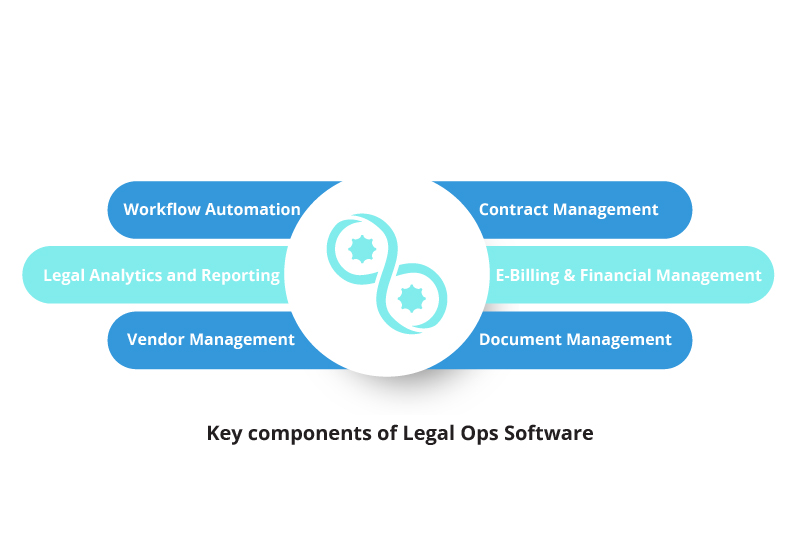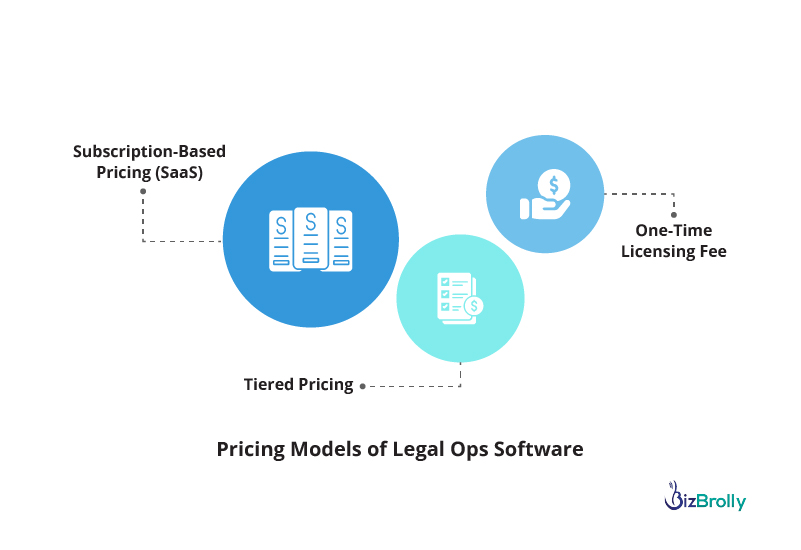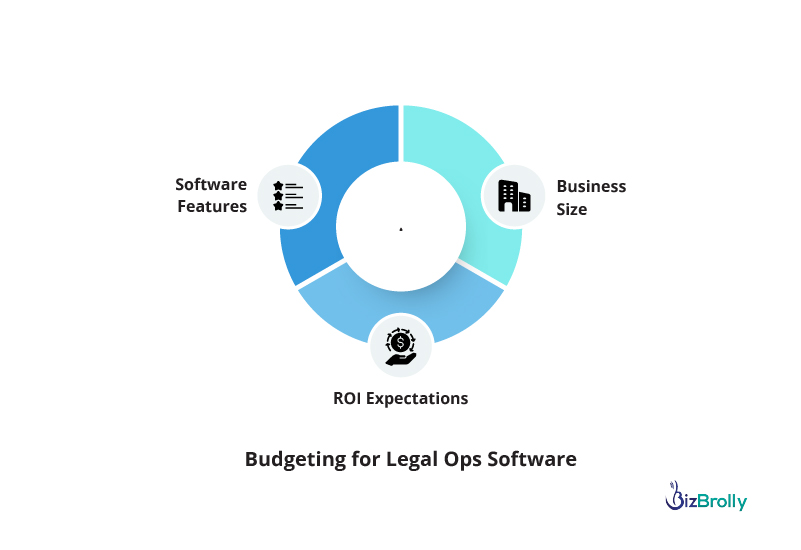Legal Ops Software: Why Legal Teams Need It and How to Build It


In the modern business landscape, the role of legal departments has evolved from primarily serving as cost centers to becoming strategic drivers of organizational efficiency and risk management. With the increasing complexity of legal requirements, businesses are turning to specialized solutions to streamline their operations and ensure compliance. Enter Legal Ops Software.
Legal operations software refers to the suite of tools and platforms designed to automate, manage, and optimize the day-to-day functions of legal teams. This software helps manage everything from contract lifecycle management and e-billing to compliance and legal reporting, providing legal departments with the tools they need to deliver value more efficiently and effectively.
In today’s fast-paced and competitive environment, relying on manual processes or outdated systems for legal tasks is no longer feasible. Legal operations software improves efficiency, reduces costs, and minimizes risk. Whether you’re an in-house legal team or a law firm, this technology offers an array of features that support both operational and strategic goals.
In this blog, we will delve into the why and cost of legal ops software. From understanding its core benefits to exploring the pricing models, we will cover everything you need to know about implementing legal ops software in your organization. We’ll also provide insights into the costs involved in adopting such a system and how businesses can ensure they get the best value from their investment.
Legal operations, or legal ops, has become a vital part of modern legal departments, particularly as businesses face increasingly complex legal requirements. Legal ops software is a suite of tools and technologies designed to optimize and automate the various processes involved in managing legal affairs within a company or law firm.
Legal ops software helps legal teams handle a broad range of functions, from document management to billing and compliance. It provides a centralized platform that can automate routine tasks, manage workflows, and offer deeper insights through data analytics. With this software, legal professionals can focus on higher-value tasks, such as strategic decision-making and risk management, while the software takes care of the administrative workload.
Here’s a deeper look at the key components of Legal Ops Software:

Contract lifecycle management (CLM) tools are at the core of legal ops software. These tools automate the creation, negotiation, approval, and storage of contracts. CLM ensures that contracts are compliant, deadlines are met, and the entire process is streamlined and transparent. This can greatly reduce the time spent on contract-related tasks and improve accuracy.
Legal teams deal with a substantial amount of paperwork and documents daily. Legal ops software includes document management systems that allow for secure storage, easy retrieval, and version control. This minimizes the risk of losing important legal documents and ensures that all stakeholders are working with the most up-to-date versions.
Managing legal fees, budgets, and invoices can be a daunting task. Legal ops software includes e-billing features, which allow for more transparent billing, the management of legal budgets, and more accurate cost tracking. These systems ensure that legal expenses are closely monitored and can help identify cost-saving opportunities.
One of the most impactful aspects of legal ops software is workflow automation. It automates repetitive tasks such as document creation, contract renewals, approvals, and reporting. Automation helps legal teams save valuable time, ensuring faster turnaround times and fewer human errors.
Legal ops software can gather data across various legal processes, providing valuable insights into the performance and efficiency of the legal team. Analytics tools help monitor key metrics such as case progress, contract compliance, and overall legal spend. This data can be used to make informed decisions and optimize legal operations.
Managing external legal resources such as outside counsel, vendors, and service providers can be complex and time-consuming. Legal ops software helps track these relationships, ensuring compliance with contracts, managing communications, and monitoring the performance of external vendors. This centralization simplifies vendor management and ensures better collaboration with external parties.
By combining these functions in a single platform, legal ops software improves productivity, enhances collaboration, and provides better insight into a company’s legal operations. The use of such software is now considered a best practice for both large enterprises and small businesses looking to optimize their legal workflows, save costs, and stay compliant.
As businesses continue to grow and expand, the need for efficient, scalable, and reliable legal operations becomes more apparent. Legal departments, often operating in silos, can struggle with fragmented processes, rising costs, and a lack of transparency. This is where Legal Ops Software comes in. By integrating and automating key legal functions, this software can transform the way businesses handle their legal needs.
In this section, we’ll delve into the key reasons why legal ops software is essential for modern businesses:
Legal teams are often bogged down with repetitive, time-consuming tasks such as drafting contracts, managing legal documents, and tracking legal spend. Manual processes not only consume time but also increase the likelihood of errors. By automating these functions, legal ops software drastically reduces the time spent on administrative tasks, allowing legal professionals to focus on high-value activities like strategic planning and advising.
Example: Automating contract creation and approval workflows can cut down contract processing time from weeks to days, accelerating business operations.
Legal departments are under constant pressure to control costs and demonstrate value. Legal operations software enables better budget management, cost tracking, and e-billing, ensuring that legal spend is accurately monitored and controlled. By automating the invoicing process and monitoring legal spend in real time, businesses can identify areas of inefficiency and work to reduce unnecessary expenses.
Example: With built-in e-billing functionality, legal ops software ensures that legal invoices align with previously agreed-upon rates, preventing overbilling and controlling the overall legal budget.
With evolving laws and regulations across various industries, staying compliant is a constant challenge. Legal ops software helps businesses stay ahead of regulatory changes by providing automated compliance management features. From data privacy regulations (such as GDPR) to industry-specific compliance, the software ensures that all legal documents, contracts, and processes meet legal standards.
Example: A legal ops software can automatically update templates and workflows based on changes in the law, minimizing the risk of non-compliance.
Legal departments have historically lacked access to meaningful performance metrics. Legal ops software includes robust analytics and reporting capabilities that offer deep insights into legal operations. By tracking metrics such as contract cycle times, legal spend, case outcomes, and more, legal teams can make informed decisions and optimize workflows.
Example: Legal ops software can generate reports on the average time it takes to resolve a dispute, allowing teams to identify bottlenecks and adjust their processes for quicker resolution.
![]()
As businesses grow, so do their legal needs. What worked for a small startup might not be suitable for a larger enterprise with complex legal requirements. Legal ops software scales with your business, offering customization options to meet the growing demands of your organization. Whether you’re expanding globally, dealing with an increasing number of contracts, or managing a larger legal team, legal ops software adapts to your needs.
Example: A global company with operations in multiple countries can use legal ops software to ensure that all legal contracts comply with regional laws, while also allowing local legal teams to manage contracts specific to their region.
Managing relationships with external legal resources, such as law firms and consultants, can be cumbersome without the right tools. Legal ops software provides a central platform for managing external counsel, tracking performance, and ensuring that legal services are delivered in a cost-effective manner. This feature enables companies to maintain strong relationships with their vendors while ensuring that costs are controlled.
Example: By integrating external law firm performance data into the platform, businesses can evaluate which vendors are most cost-effective and provide the best service, helping streamline vendor selection and reduce costs.
When considering the implementation of legal ops software, one of the most significant factors businesses need to evaluate is cost. Legal operations software can be a considerable investment, but it often pays off in the long run by improving efficiency, reducing manual errors, and controlling costs. The price of legal ops software varies widely depending on several factors such as the size of the business, the features included, the complexity of the solution, and whether it’s a one-time purchase or subscription-based.
In this section, we’ll break down the cost structure of legal ops software, examine the various pricing models available, and help businesses understand the factors that influence costs.
The cost of legal ops software generally falls into one of three common pricing models:

Most legal ops software today is offered on a Software-as-a-Service (SaaS) model, where businesses pay a recurring subscription fee. This pricing structure provides flexibility and scalability, allowing companies to pay based on their usage. SaaS models often include software updates, customer support, and cloud storage within the subscription fee.
Pros: Lower upfront costs, ongoing updates and support, scalability, and predictable pricing.
Cons: Ongoing expenses, which can add up over time, and limited customization compared to one-time purchases.
Some legal ops software solutions charge a one-time licensing fee, where businesses pay for perpetual use of the software. This model typically requires a larger initial investment but can be more economical in the long term for businesses that don’t need frequent updates.
Pros: No ongoing subscription fees, long-term use without additional costs.
Cons: Higher upfront cost, fewer updates and support unless additional service packages are purchased.
Many software providers offer tiered pricing models, where businesses can select from different pricing plans based on the features they need. For example, a basic tier might only include contract management, while a premium tier could include advanced analytics, compliance tracking, and integration with other enterprise systems.
Pros: Flexibility to choose a plan based on business needs, scalable.
Cons: Complexity in choosing the right tier, and businesses might pay for features they don’t use.
Several factors can influence the final cost of legal ops software, including:
The more comprehensive the software, the higher the price. Legal ops software comes with a wide variety of features, and the specific functions you require will impact the cost. For example, a basic contract management system will cost significantly less than a complete legal ops suite that offers e-billing, analytics, document management, compliance tools, and vendor management.
Cost Range:
Many legal ops software pricing models are based on the number of users who will access the platform. The more users your organization has, the more expensive the subscription will be. Larger enterprises with multiple departments or global teams typically pay more than smaller businesses or firms with a limited number of legal professionals.
Example: A company with 50 legal professionals would typically pay more than a company with just 5.
If your business requires custom features or integration with existing systems such as Enterprise Resource Planning (ERP) systems, Human Resources software, or Customer Relationship Management (CRM) tools, this can significantly increase the cost. Customization often involves additional setup fees, development work, and sometimes ongoing maintenance costs.
Example: Integrating the legal ops software with an existing CRM system might involve additional one-time fees for customization and development (ranging from $1,000 to $10,000 depending on the complexity).
Legal ops software can either be deployed on-premise (in-house servers) or hosted in the cloud (SaaS). Cloud-based deployment is generally more cost-effective for small to medium businesses, as it doesn’t require extensive IT infrastructure or support. On-premise solutions tend to have higher upfront costs because they require purchasing hardware, IT support, and installation services.
Cost Comparison:
While evaluating the cost of legal ops software, businesses must consider the Total Cost of Ownership (TCO), which includes all costs associated with purchasing, implementing, and maintaining the software. The TCO can differ depending on the deployment model, the customization level, and any additional training or integration required.
For example, a business with 100 users might spend an initial $15,000 – $50,000 on setup, and then face ongoing costs of $20,000 – $60,000 annually for software licensing, support, and training.
When budgeting for legal ops software, businesses should carefully consider the following:

Business Size: Small businesses may opt for basic plans, while larger enterprises may need more advanced features with customization and integrations.
Software Features: Define which features are essential for your organization. Investing in features you don’t need can lead to unnecessary costs.
ROI Expectations: Focus on the expected ROI, such as time saved, cost reductions, and better compliance, when justifying the investment.
Legal operations software is not just a tool for managing day-to-day legal tasks, it is a game-changer in optimizing the entire legal department’s efficiency and supporting broader business success. When properly implemented, legal ops software can streamline workflows, increase collaboration, reduce overhead, and ultimately drive a significant return on investment (ROI).
One of the primary benefits of legal ops software is its ability to automate routine tasks, such as contract management, document generation, e-billing, and compliance tracking. Automation removes the burden of manual data entry and reduces the risk of human error, allowing legal teams to focus on more strategic tasks. Some examples include:
Contract management: Legal ops software automates the drafting, reviewing, and approval of contracts. It can store templates, track approval statuses, and even alert legal teams of deadlines, ensuring faster turnaround times.
E-billing: The software can automate billing processes, helping ensure accurate and timely invoicing, compliance with billing guidelines, and proper tracking of expenses.
Document management: Legal ops software often includes document management features that help organize contracts, case files, and other legal documents, making them easier to access and reducing the time spent on searching for documents.
Effective collaboration across departments is essential for the smooth functioning of any business, and legal ops software facilitates this by providing a centralized platform where various stakeholders can interact. With a unified system for managing legal processes, teams can collaborate more easily and share information in real-time, improving decision-making.
Increased transparency: Legal teams, finance teams, and other departments can access the same data on contract statuses, legal expenses, and other legal matters, ensuring everyone stays on the same page.
Enhanced communication: Legal ops software often comes with built-in communication tools such as messaging, notifications, and collaboration features that keep team members connected and informed.
Real-time updates: When a contract is reviewed or an invoice is approved, everyone involved gets real-time updates, which helps maintain momentum and ensures that deadlines are met.
Legal ops software often includes robust analytics and reporting features that provide insights into legal operations and key performance indicators (KPIs). By tracking and analyzing data, legal teams can make more informed decisions, optimize workflows, and spot areas that need improvement. Some key insights gained from these tools include:
Cost analysis: The software can track legal spend, identify areas of overspending, and suggest ways to reduce costs. For example, it can highlight which legal matters are consuming the most resources, allowing legal teams to reallocate efforts more effectively.
Performance metrics: By measuring metrics like turnaround time for contract approvals, billing cycles, and compliance rates, legal teams can benchmark performance and identify opportunities for improvement.
Risk assessment: Legal ops software helps track compliance status and potential risks. The software can flag potential regulatory violations or impending deadlines, helping legal teams mitigate risks before they become issues.
Legal departments are tasked with ensuring that the business complies with an array of local, national, and international regulations. Legal ops software simplifies compliance management by automating processes and providing visibility into compliance status. Features like automated reminders, document tracking, and audit trails ensure that the company remains compliant with various regulations, reducing the risk of fines or legal action.
Regulatory compliance tracking: Legal ops software can be set up to track important compliance dates, legal obligations, and regulatory changes. This proactive approach ensures the legal team stays ahead of the curve and minimizes risks.
Audit trails: Many software solutions include audit trails that track all activities related to documents, contracts, and legal actions, ensuring that compliance is maintained and providing a clear record if legal issues arise.
Risk management: Legal teams can leverage the software’s capabilities to assess and manage risk more effectively, ensuring that high-risk projects are identified early and receive proper attention.
Legal departments are often under pressure to control costs while maintaining a high standard of service. Legal ops software helps achieve this by automating tasks, reducing overhead, improving productivity, and providing better visibility into costs. A reduction in time spent on manual tasks leads to lower operational costs, and the ability to track expenses more accurately ensures that legal costs remain within budget.
Reduced administrative overhead: Automation and digitization of routine tasks significantly lower administrative costs, freeing up resources to focus on more strategic work.
More effective use of resources: With legal ops software, businesses can allocate resources more effectively, ensuring that legal teams are working on high-priority tasks instead of getting bogged down in repetitive administrative duties.
Increased efficiency: The software’s streamlined processes result in faster turnaround times for legal matters, which helps businesses become more agile and reduce the time and costs associated with legal issues.
As businesses grow, their legal operations become more complex. Legal ops software is designed to scale alongside the business, offering features that can be expanded as needed. Whether a business is expanding into new regions, acquiring other companies, or simply growing its legal department, the software can adapt to the increasing demands.
Scalability: Legal ops software can accommodate additional users, departments, and features as the business expands. This scalability ensures that the software remains relevant and useful even as business needs evolve.
Global compliance: For businesses expanding internationally, legal ops software can be configured to track different regulatory requirements in various countries, ensuring compliance with global standards.
Integration with new systems: As businesses evolve, they may require integration with new software tools or platforms. Legal ops software is often built to integrate seamlessly with other enterprise systems, ensuring continuity as businesses scale.
In today’s competitive business world, legal ops software is a game-changer—automating workflows, cutting costs, and ensuring compliance. By streamlining contract management, improving collaboration, and providing data-driven insights, it transforms legal teams into strategic assets.
While costs vary, the ROI is undeniable: greater efficiency, reduced risks, and scalable growth. Whether you’re a startup or an enterprise, legal ops software is no longer optional—it’s essential for staying ahead.
Ready to revolutionize your legal operations? BizBrolly offers cutting-edge legal ops solutions tailored to your needs. Book a demo today and see how we can optimize your legal workflows for success!

Did you know that executives don’t receive the data they need 65% of the t...
Explore more
In recent years, artificial intelligence (AI) has rapidly advanced, with neural ...
Explore more


D-23, Sector 63, Noida,
UP - 201307

141 Westgate Dr, Edison,
NJ - 08820

4 Black lion court, Mill road, Kent, UK – ME71HL

2207, 2220 Lakeshore Blvd W, Toronto ON- M8V0C1

94A Central Road, Jacanlee, Johannesburg 2194